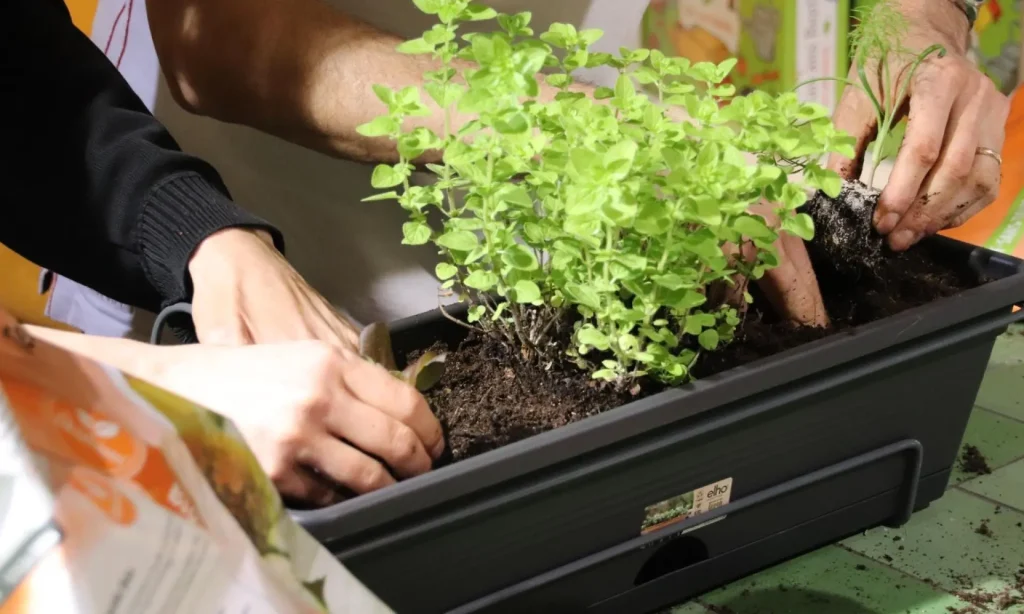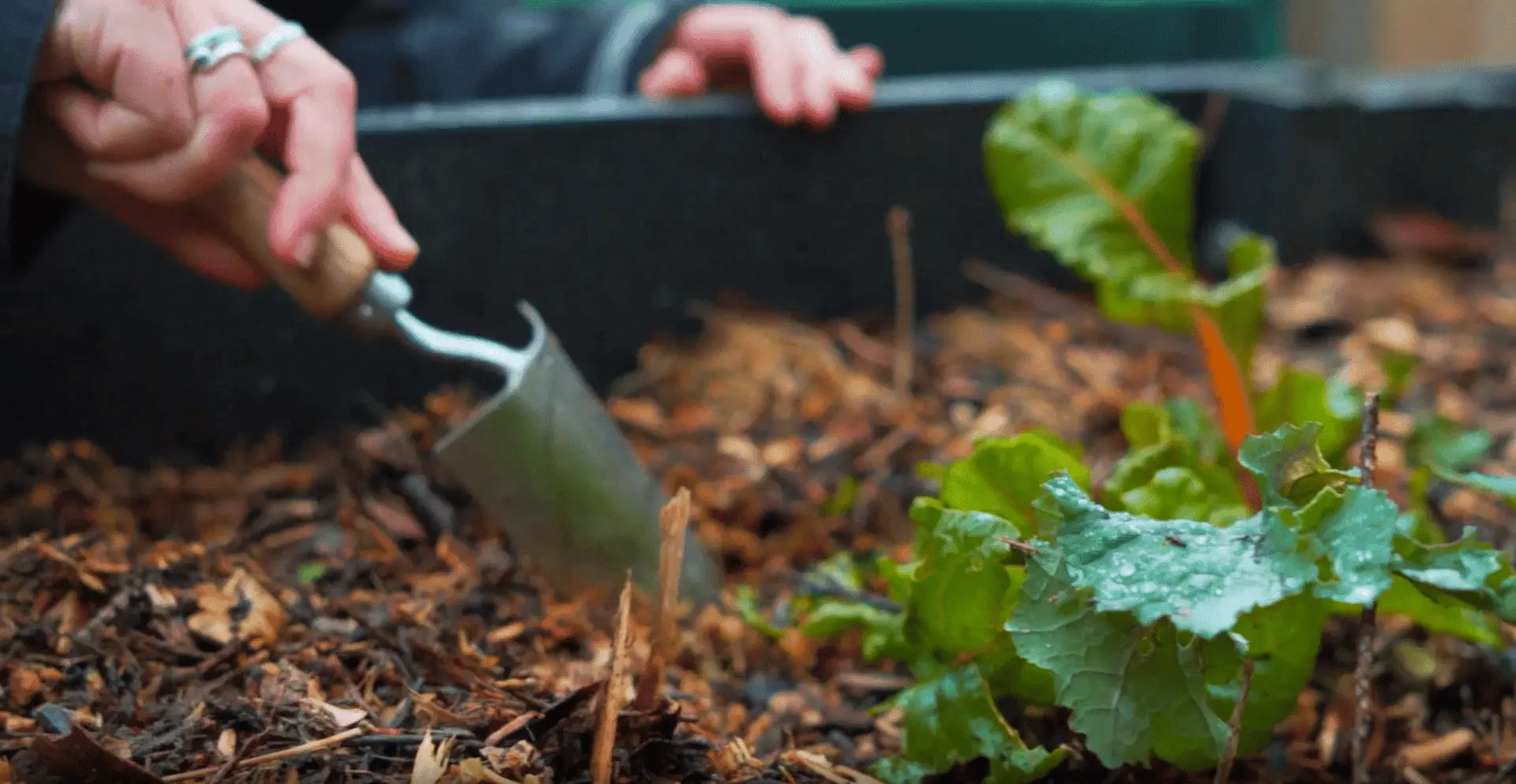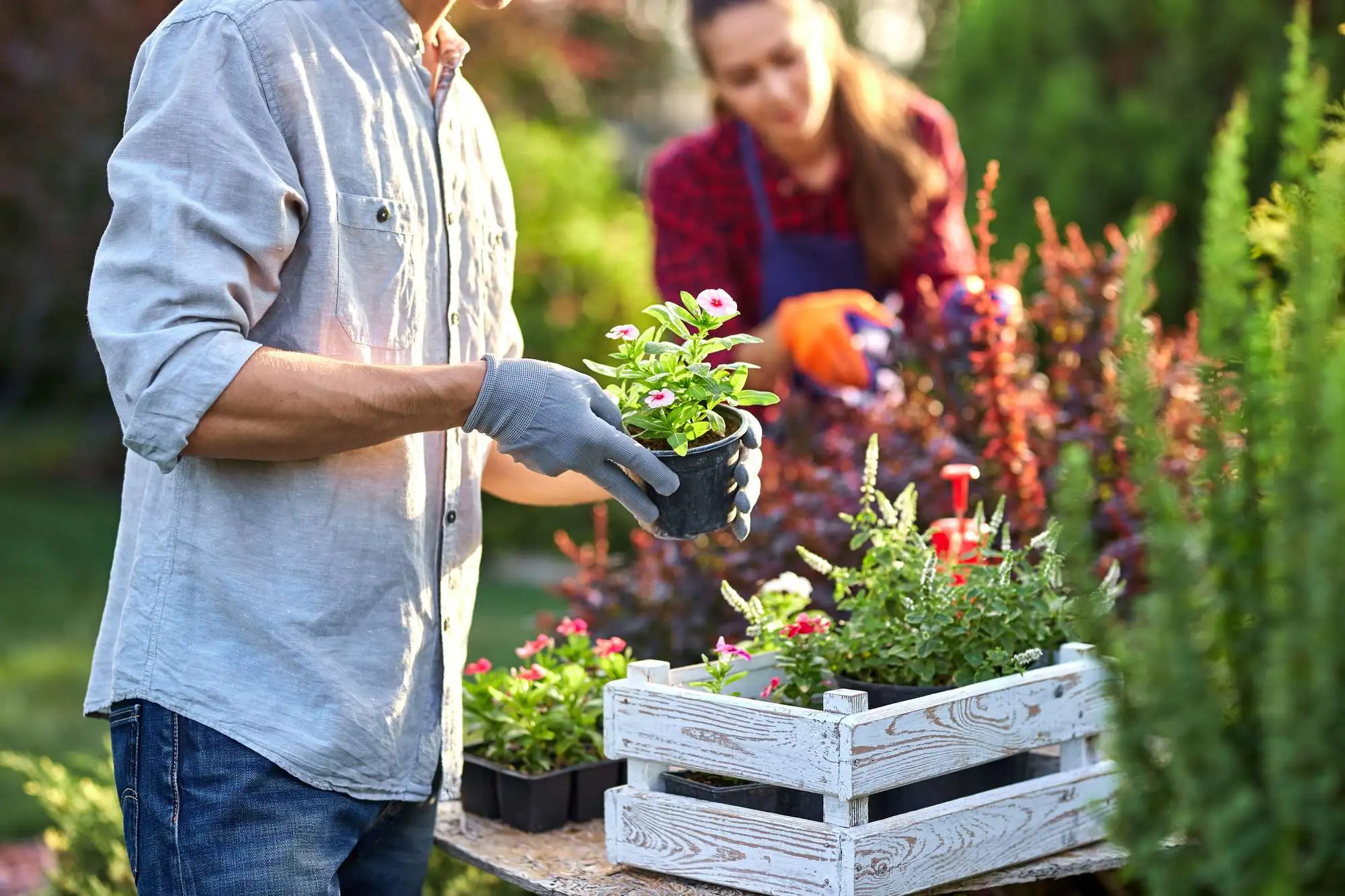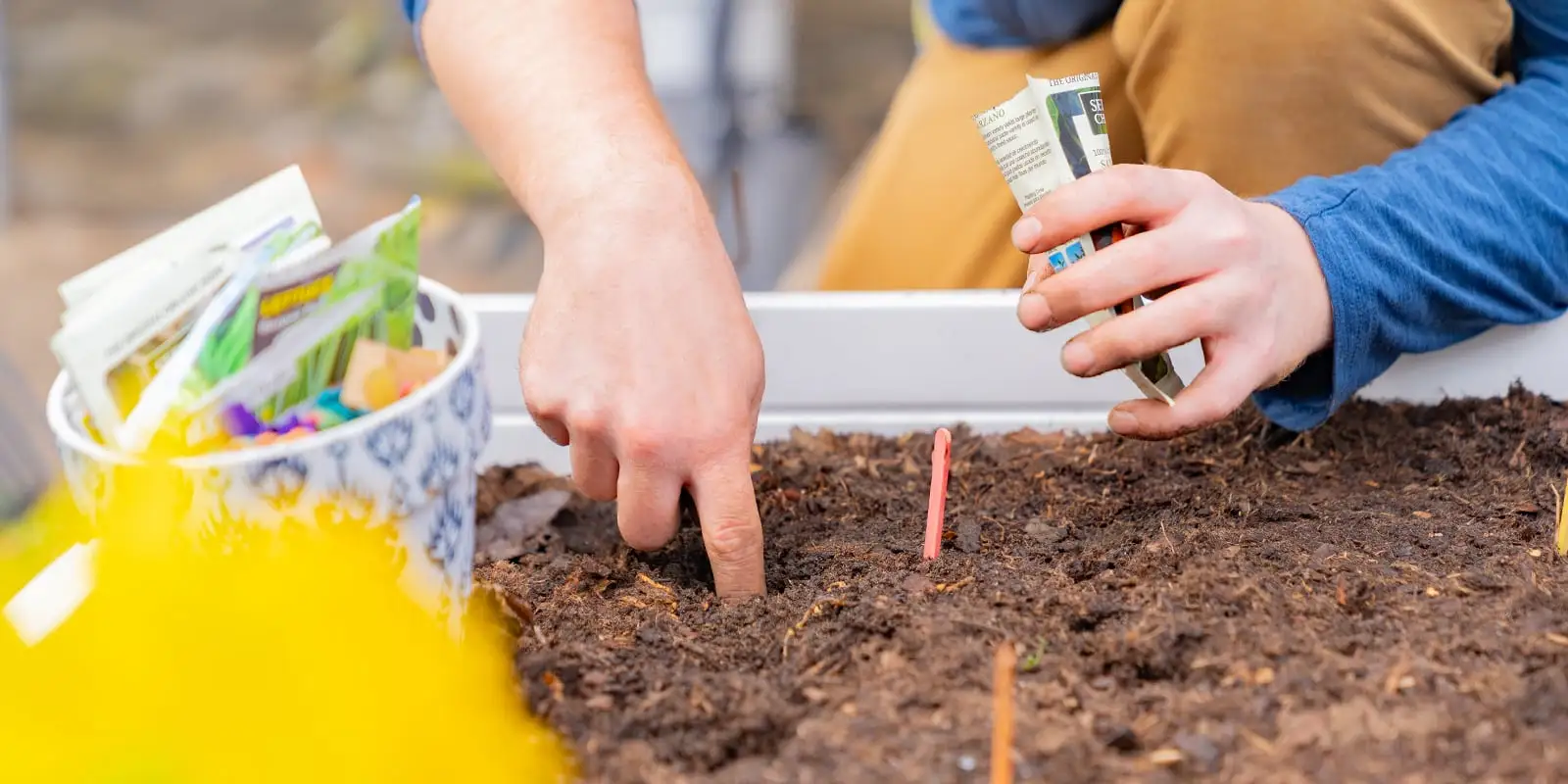
Gardening Made Easy for Seniors: 13 Easy Home Gardening Tips
Gardening made easy for seniors!!! Don’t be surprised! You must be asking how?! Do you dream of a lush, green garden filled with vibrant flowers and fresh, homegrown vegetables? Do you believe that gardening is a hobby reserved for the young and energetic? Think again! This article from humanhealthmag is designed to empower seniors to embrace the joy of gardening, regardless of age or physical limitations.
Gardening, a timeless pursuit, offers countless benefits for people of all ages. It’s a wonderful way to connect with nature, stimulating our senses and providing a much-needed escape from the hustle of everyday life. For seniors, gardening can be especially rewarding. Imagine tending to a garden and watching as seeds transform into vibrant flowers or delicious vegetables. It’s a tangible way to experience the beauty of nature and nurture a sense of accomplishment.
How to make gardening easier for seniors? Let’s explore how gardening can be a rewarding and accessible hobby for older adults. We’ll explore practical tips and techniques to create and maintain a beautiful, low-maintenance garden. From designing your ideal outdoor space to selecting the right plants and optimizing your harvest, this guide will provide you with all the information you need to get started.
The Benefits of Gardening for Seniors
Gardening made easy for seniors. As we said in gardening gifts for elderly, regardless of our age, gardening is one of the best outdoor activities we can do, as it stimulates our five senses and strengthens our connection with nature. Gardening combines physical activity, mental stimulation, and social interaction, making it an ideal way to stay healthy and happy.

- Reducing Stress
Research has shown that gardening significantly reduces cortisol levels (the stress hormone), leading to lower stress and even blood pressure. In one study, participants were asked to complete a stressful task and then spend 30 minutes either reading or gardening. Researchers observed a decrease in stress in both groups, but interestingly, cortisol levels and stress were reduced more significantly in the gardening group. Additionally, spending time outdoors, soaking up the sunlight, and creating a beautiful garden provides an opportunity for relaxation, peace of mind, and enjoyment.
- Increasing Serotonin
Serotonin is a brain chemical that influences mood, promoting feelings of calmness and happiness. Gardening can increase serotonin production, helping to alleviate symptoms of depression in seniors. Some researchers believe that contact with certain bacteria in soil triggers the release of serotonin in the brain, acting as a natural antidepressant.
- Improving Heart Health and Reducing Stroke Risk
Gardening is considered a moderately intense exercise, equivalent to about 30 minutes of daily exercise as recommended by health professionals. Regular gardening can reduce the risk of heart attack and stroke by up to 30% in seniors aged +60. Additionally, exposure to sunlight increases vitamin D levels in the body, which can lower the risk of heart disease.
- Boosting Physical Activity
As mentioned, gardening is a form of exercise for seniors, increasing physical activity and strength. Studies have shown that gardening is an effective way to regain strength and increase mobility for individuals who have suffered a stroke.
- Enhancing Brain Health
While the exact causes of Alzheimer’s disease are unknown, research suggests that a healthy lifestyle can reduce the risk of developing it. Gardening engages seniors in essential functions such as problem-solving, perseverance, and sensory awareness, thereby lowering the risk of Alzheimer’s and other dementia-related diseases.

How to Make Gardening Easier for Seniors?
With these simple tips, seniors can save time and energy on her/his home gardening projects.
- Choose the Right Plants
The first rule of a neat and tidy garden is selecting suitable plants. Begin by assessing your soil and its fertility. Choose plants that require minimal care, such as succulents, cacti, and herbs. Or, there are lily varieties that can withstand intense heat and sunlight without pests.
- Add a Layer of Mulch
Mulch is a layer of organic material, such as leaves, grass clippings, or compost, that’s applied to the soil’s surface. A 3-5 cm layer of mulch helps retain soil moisture, preventing it from drying out quickly. Organic mulches like coconut coir, wood chips, or compost are ideal choices.
- Simplify Watering
Why waste time and energy watering with a hose? Purchase soaker hoses and place them in your garden. These porous hoses release water slowly and continuously. Lay the hose in your garden and cover it with mulch. Simply turn on the tap. For added convenience, connect the hose to an automatic timer.
- Keep Containers Moist
During hot summer days, don’t let your potted plants dry out. Use a drip irrigation system to keep the soil consistently moist. These systems are readily available at gardening stores and are quite affordable.
- Weed Early and Often
Don’t let weeds get a foothold in your garden or pots. Pull them out as soon as they sprout to prevent them from spreading. Some weeds can produce up to 150,000 seeds in a single season. So, eliminate them before they overrun your garden.
- Deadhead Spent Blooms
It’s not just weeds that can spread. Certain garden flowers, like black-eyed Susans, cleome, and datura, can self-seed and become invasive. Deadhead these plants before they go to seed to prevent overcrowding.
- Create Garden Edging
Use materials like plastic, bricks, or soil to create borders around your garden beds. Bury these materials about 15 centimeters deep to prevent weeds from encroaching.
- Keep a Garden Journal
Use gardening books or articles to improve your gardening skills. Additionally, join a Gardening Club and connect with other gardeners for advice and support. Take photos of your garden at different times of the year to document its growth and changes.

- Raise Your Beds
If you want to create larger planters above ground level, fill them with a mixture of potting soil and compost. Raised beds are easier to drain and can be made in smaller, more manageable sizes. Raised beds can make gardening easier for seniors by reducing bending and strain.
- Create Sloping Gardens
To add a visually appealing element to your garden, create sloping flower beds. This eliminates the need for extensive soil preparation and leveling.
- Use Compost Effectively
Nourish your plants with natural fertilizers like compost or manure. Farmers and gardeners alike appreciate the value of compost. Compost improves soil aeration, allowing water to penetrate more quickly. It also helps sandy soils retain moisture for longer periods. Don’t discard your garden’s dry leaves; use them to create compost.
To create your own compost, layer organic materials like kitchen scraps, leaves, and grass clippings in a compost bin. Turn the pile regularly to aerate it and speed up the decomposition process. Once the compost is ready, spread it around your plants to nourish the soil.
- Use the Right Tools
Gardening becomes much easier when you have the right gardening aids for seniors. Choose elderly gardening tools that fit their hand comfortably. For example, gardening gloves, pruning shears, and more.
- Keep Your Garden Simple
Keep your garden as simple and uncluttered as possible to make maintenance easier. Start with a few plants and gradually increase the number as you gain experience.
Concluding Remarks
In this article we talked about gardening made easy for seniors. Gardening offers a multitude of benefits for seniors, both physically and mentally. By following a few simple safety tips, such as choosing appropriate plants, using ergonomic tools, and providing adequate shade and rest, seniors can enjoy the therapeutic effects of gardening without putting themselves at risk.
For those with cognitive impairments, supervised gardening activities can be especially beneficial, providing opportunities for physical activity, social interaction, and a sense of accomplishment. Remember, a little preparation and planning can go a long way in ensuring a safe and enjoyable gardening experience for your loved ones. By creating a nurturing and supportive environment, we can empower seniors to reap the rewards of this rewarding hobby.

Frequently Asked Questions
How to make gardening easier for the elderly?
There are several ways to make gardening easier for seniors. These include choosing the right plants, using lightweight and ergonomic gardening tools, creating a safe work environment, and providing the necessary training. Encouraging seniors to work in groups and participate in group gardening activities can also increase their motivation and provide them with an enjoyable experience.
What plants are suitable for senior gardening?
Choosing the right plants is the first step to a successful and low-maintenance garden. Plants that are easy to grow, require little watering, and are resistant to pests are ideal for seniors. Perennials such as rosemary, mint, and cilantro are good choices because of their durability. Also, small vegetables such as strawberries and cherry tomatoes grown in pots can be suitable for gardening in small spaces.
How to ensure the safety of the elderly while gardening?
Safety while gardening is very important for seniors. To ensure safety, you can use lightweight gardening tools, garden during the cooler hours of the day, wear a hat and sunscreen, and place a comfortable chair near the garden so they can rest when needed. Also, creating clear, obstacle-free paths in the garden can prevent the risk of falling.
